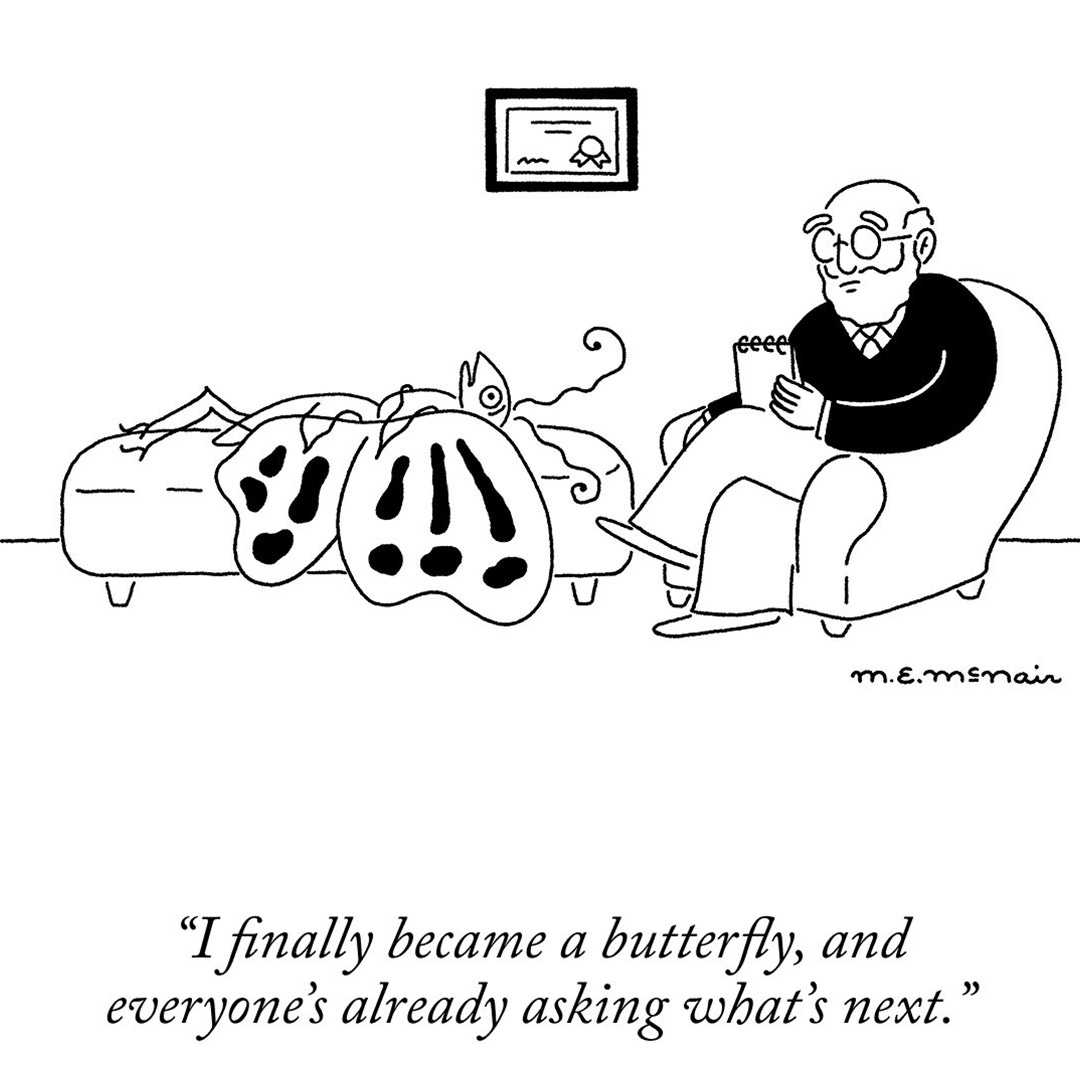The Past Explains You, But It Doesn’t Define You
Why early experiences matter less than we think and what matters more.
One cannot read a book or watch a movie these days without encountering a revelation of past trauma. In the New Yorker, Parul Sehgal calls this the “trauma plot” — narratives that center around a character’s traumatic past experiences that conveniently explain all present-day behavior and personality. The story keeps circling back to that wound as the key to understanding who the character is, often through a revelation or flashback structure where we gradually learn about “what really happened.”
Consider Yellowstone, where the Dutton family’s dysfunction all traces back to the mother’s death and John’s harsh parenting, explaining each child’s particular brokenness. In Grey’s Anatomy, Meredith’s “dark and twisty” personality stems from her mother’s Alzheimer’s and abandonment issues. Nearly every character has a defining trauma; Derek’s father’s murder, Cristina’s plane crash PTSD. The message is simple: the past not only impacts you, it defines you. You are who you were and always will be.
When the past becomes the plot
This way of thinking has spilled into therapy. I increasingly meet people who are convinced that any past suffering has not only shaped who they are but has become a central and immutable part of their identity. A young woman recently told me that the reason she has commitment issues is because she moved a lot as a child. Another explained that her father’s infidelity is why she cannot trust anyone. A third insists that her low self-esteem is rooted in her mother’s criticism.
What troubles me about this line of thinking is the assumption of permanence. “This is who I am,” they tell me.
But here’s what the research actually shows: the majority of people who go through difficult times are resilient, experiencing little if any lasting psychological changes due to their experience. When it comes to attachment issues, there is very little evidence that early experiences determine adult outcomes. Let me say that again: there is very little evidence that early experiences determine adult outcomes.
While your early interactions influence how you relate to others as an adult, the connection is surprisingly weak. Researchers have found that many people who had supportive parents still struggle with insecure relationships, and many people with difficult childhoods end up feeling secure in their adult relationships. Put simply, foundations are not fate.
When challenges become opportunities
Instead of dwelling on past difficulties and allowing them to become a central part of your identity, research from Stanford University reveals a more effective path forward. In a randomized controlled trial conducted two years after the height of the COVID-19 pandemic, researchers guided participants through a one-hour intervention designed to shift their mindset about their lockdown experience.
The intervention included watching short videos highlighting how people often grow as a result of living through difficult or watershed events. Common areas of growth included developing a greater appreciation for life, strengthening relationships, deepening spirituality, and pursuing new opportunities.
After viewing the videos, participants reflected in writing on their current mindsets about the long-term impact of the pandemic and potential areas of growth they could pursue in their own lives. The results were striking: those who received the intervention showed lower levels of depression three months later compared to the control group. Blood tests also revealed lower levels of C-reactive protein, an inflammatory marker linked to chronic stress and disease.
Moving forward with purpose and perspective
If you’re having trouble moving forward after a difficult time, here are some questions to consider:
How have your relationships transformed as a result of this event?
In what ways have you noticed that you’ve grown stronger or more resilient?
How has your sense of what matters changed?
What changes would you like to make to better prioritize what matters most to you?
Are there any habits or routines you’d like to break out of?
The takeaway here isn’t to “think positive.” Rather, it’s to restore nuance, to counteract catastrophizing, and to challenge the belief that you are permanently broken and vulnerable.
The question isn’t what happened to you; it’s what you’ll do next.




Wow. I love your pieces. This resonated so hard with me. Thank you! 💗
This is so good. "Foundations are not fate." 🌟 As someone with what would be considered a background of abundant trauma, I've always felt like a unicorn when I read the gloom and doom predictive projections of therapeutic assessments and where they say I could (or even should) be compared to the reality of my life which has been incredibly rich in meaning and purpose and exploration and discovery.
And, that said, although I'm currently in the middle of an intense high conflict divorce and custody situation, there's a deep level of appreciation for the genuine refinement of my life that continues to occur – a new call to service, a deepened relationship with the divine, more authenticity and joy and presence.. the list goes on and on.
I'm curious what your thoughts are on repeating patterns through family lines, and our capacity to not sink into shame around it but instead recognize the opportunity to respond differently, to shift direction. I've been fascinated by watching childhood elements repeat in my adult life, despite my real and sincere attempts to avoid those particular speedbumps (case in point: current situation, down to some very particular and unique details).
Any thoughts on what's up with this? I agree wholeheartedly with your assessment, and am intrigued to hear your thoughts on how this all works (this being incarnation, ancestral lines, the formation of the human being, purpose, etc 😅).